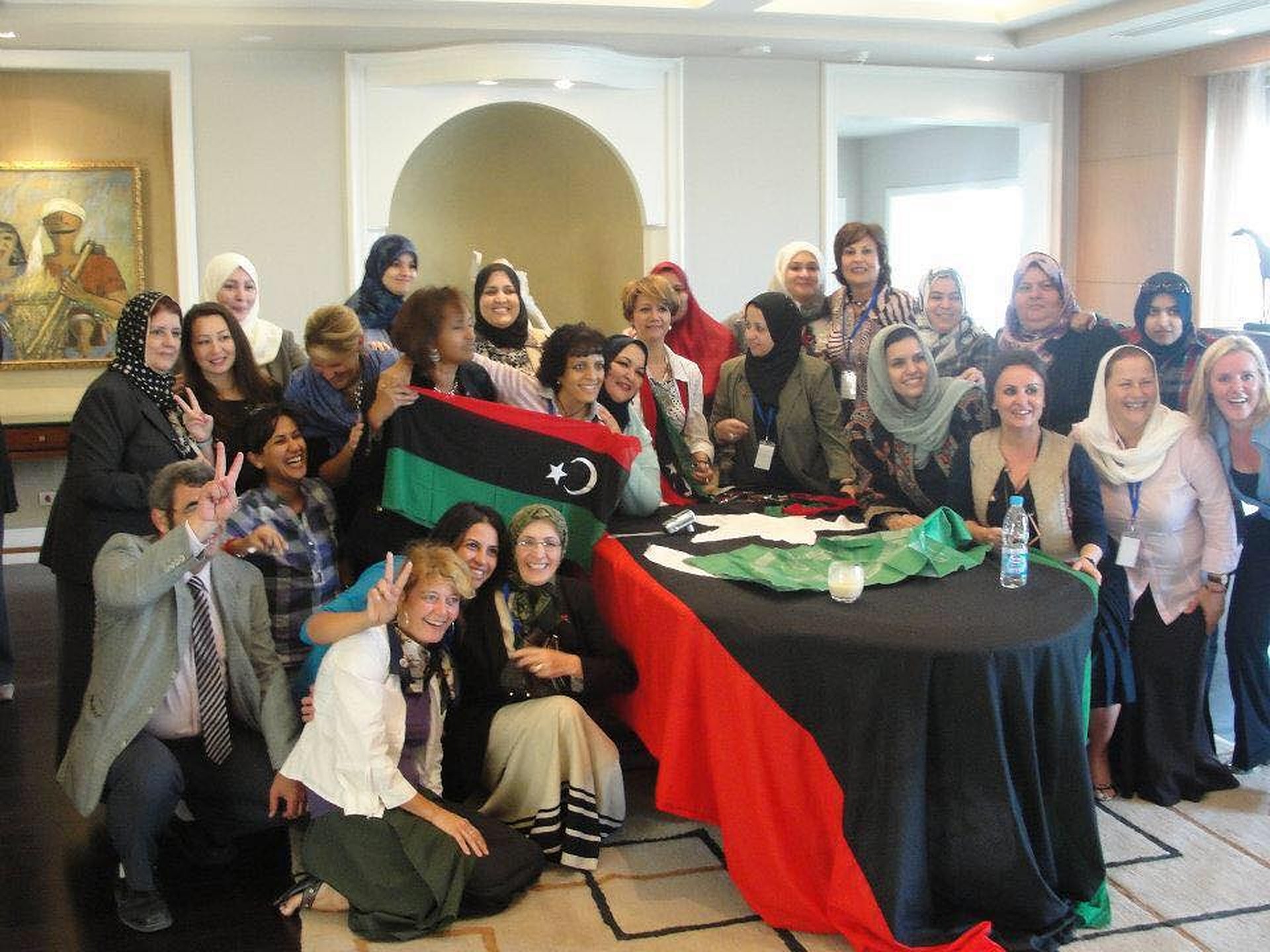
Despite the fact that civil war affects all members of society in many different ways, voices of certain members in the community, like women, are often excluded from peace talks. Coverage on peace processes have also been largely limited to those involving high level officials or formal negotiations, yet it omits informal process and more local levels that involve civil society groups.
Women represented only 13 per cent of negotiators, 3 per cent of mediators and only 4 per cent of signatories in major peace processes, as tracked by the Council on Foreign Relations. This is despite the fact that women’s contributions often result in the prevention of many conflicts, as one study found that peace processes are more likely to last at least 15 years with the participation of women, according to the International Peace Institute.
Since the fall of Muammar Qaddafi in 2011, fighting erupted in Sebha among members of several tribes and groups. This plunged the country into ongoing conflict among rival factions seeking control of Libya, mainly between the House of Representatives led by Marshal Khalifa Haftar and the Government of National Accord, led by Prime Minister Fayez al-Sarraj.
Yet the involvement of Libyan women in formal peace processes has largely been limited. “There is a lack of trust and confidence in the capabilities of women in the political realm,” Maryam Dajani, program and communication officer at Libyan Women’s Platform for Peace (LWPP) organization, tells Egyptian Streets, “In the rare case where women are included in peace processes, they are often taken in to merely tick the box of women participation, and are still not given an equal opportunity in participation.”
Dajani adds that when women peace-builders are included, they tend to better represent the needs of their local communities. “When women are involved in the peace process, the outcome of the peace process is more legitimate and sustainable because women are keen in establishing communication channels with local communities,” she says, “they also tend to be able to build trust relationships between conflicting parties.”
As a result of this, LWPP launched the awareness campaign titled “Women Peace Mediators” in 2018, which aimed at showcasing examples of active participation by women in peace processes in Libya’s oral history as well as its heritage and customs. “The underlying objective was to underscore the role of women in local and national mediation and reconciliation in Libya in the past and present,” Dajani notes.
Since its founding in 2011, Libyan Women’s Platform for Peace (LWPP) was launched by over thirty-five women from various communities across Libya to ensure that women play a vital role in post-Gaddafi Libya. It focuses on inclusive transitions, women’s rights, youth leadership, advancement and security as related to women’s political and economic participation and constitutional reform. For nine years, LWPP has worked on building the capacities of more than 100 organizations and activists in Libya to create a critical mass of CSOs and activists mobilized to influence peace-building.
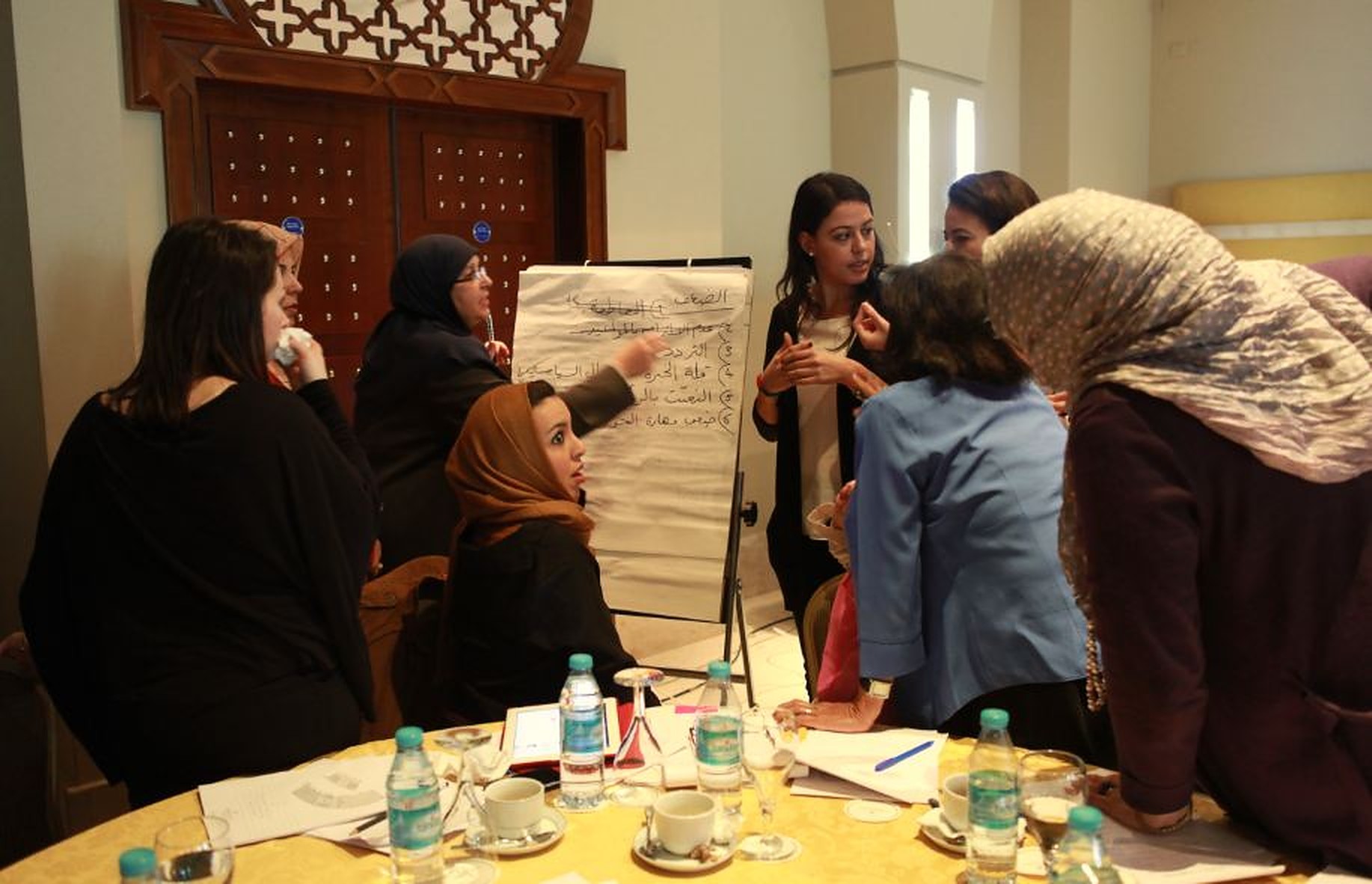
Even before Gaddafi’s regime, women’s active role and their contribution to their communities in Libya has been documented in history. Since 1955, women rallied to establish the first women’s groups. Yet today, Libyan women have been facing increasing restrictions and challenges, namely cultural norms and patriarchal conceptions of political activities that are tied to masculinity, which limits their participation in politics. On top of that, instability has also restricted their mobility and their chances to gain access to equal opportunities in education and work, which produce a spiral of inequalities and human rights abuse as many women and young girls are forced to get married to “protect” them.
Earlier in May, the World Health Organization stated that women and children bear the brunt of the armed conflict in Libya. Since the start of this year, the United Nations verified 113 cases of human rights abuses, such as the killing and maiming of children as well as attacks on schools and health facilities. Many women also lost their husbands and families due to the conflict, displacing around 140,000 in Tripoli as a result of the war.
However, the issue isn’t necessarily that society is largely against these women, according to Dr. Rida Al-Tubuly, co-founder of “Together We Build It”, but primarily the stability of the government, as the existence of militias makes it even more difficult for women to gain an equal position in society.
“There is no real empowerment of women without the disempowerment of warlords,” Dajani says. As such, in parallel to ensuring the participating of women, they have also been working on ending impunity of warlords. They launched advocacy campaigns and projects aimed at demilitarization, and also organized the first consultation meetings on disarmament, demobilization and the reintegration of armed groups. “We also joined forces with many youth leaders, and mobilized societal actors against militarization which was plaguing the Libyan society,” Dajani adds.
At the heart of their framework is the significance of inclusion and cooperation between different groups in society, such as women, youth, CSOs and local communities. This is done through strengthening civil society cooperation across Libya, and focus more on a trust building approach at the grassroots level. “For us, community trust is critical to enhancing the role of women as change makers in Libya,” Dajani notes.
Following the ‘relationship’ approach, which is in contrast to a mere ‘dialogue’ approach, LWPP have worked on creating community outreach activities in Benghazi between the local council, army (Demining Military Platoon) and civil society to focus on human security and ways to deal with healing the traumas of the war. Simultaneously, they are also building a national network of women mediators to amplify their voices and document their stories, aiming to create better collaborations and knowledge sharing, and link them with women members of the political dialogue in Track I of the negotiations.
Despite their absence in formal peace processes, it is important to highlight Libyan women’s important role in other various informal processes and acknowledge local practices that are deeply rooted in the country’s national traditions. Their activism, local peacemaking efforts, and knowledge can ensure inclusive, transformative, and durable peace. It is not just about ensuring that they are involved at the negotiating table, but also about recognizing other peacemaking efforts that are diverse and locally driven.
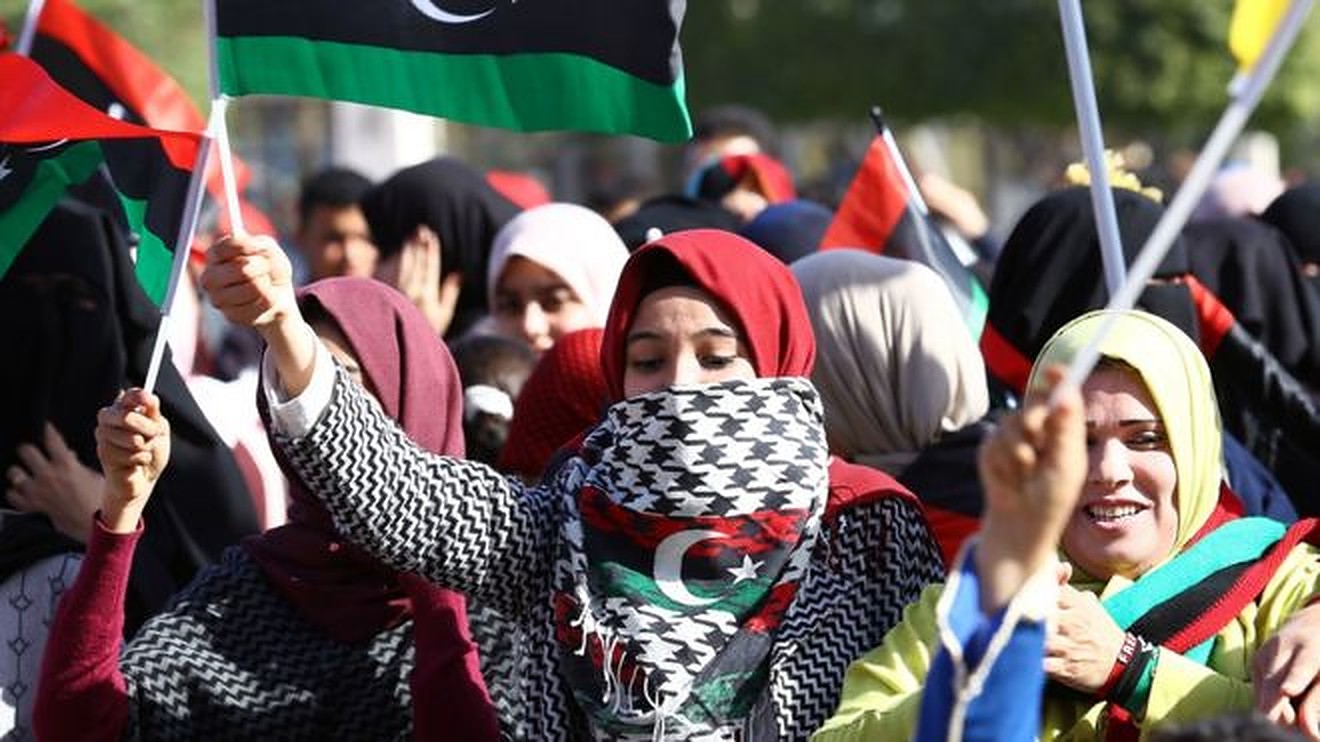




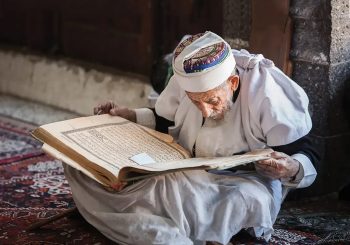
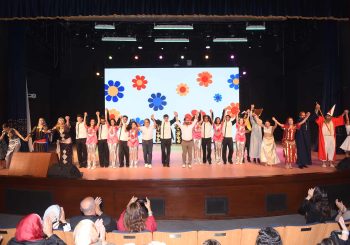
Comments (4)
[…] With No Seat At the Table, Libyan Women Are Charting their Own Path at Peacemaking […]
[…] With No Seat At the Table, Libyan Women Are Charting their Own Path at Peacemaking […]